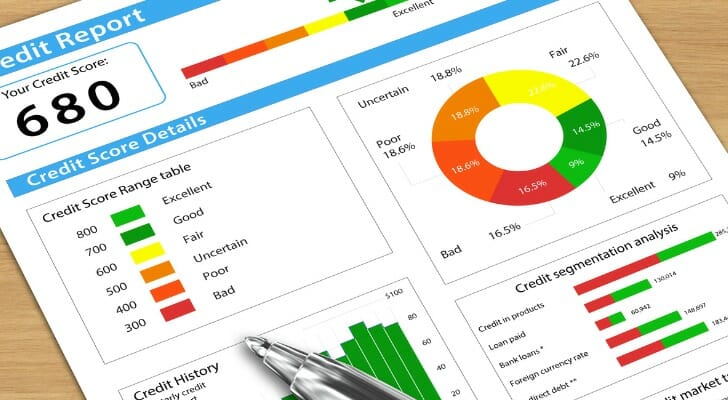Having good credit is an important factor in whether you’ll be approved for new lines of credit or lower interest rates on loans. Credit scoring agencies use many different factors from your credit history to determine your credit score. While having a good credit score is beneficial in many ways, there are higher ranges you can reach. To make it to them, improving your payment history and overall credit report is crucial.
Are you looking to improve your credit situation? Talk to a local financial advisor today.
What Is a Good Credit Score?
Technically speaking, a “good” credit score is one that falls between 670 and 739. Having a good score is typically the result of a lot of responsible credit use, with perhaps a few late payments. You may also find yourself with a good credit score if you’re new to using credit and have a limited history and credit mix.
A good credit score, however, may mean different things to different lenders. For instance, most credit cards are attainable with a good score. However, it isn’t unheard of to be denied for a card because your score is too low, even though it may technically fall into the “good” category.
Having a good credit score matters in other ways as well. Some landlords look at credit scores before renting to tenants, and people with higher credit scores also tend to pay less for insurance. To make sure that your credit score is actually good, make sure that you pay your balances on time and use your lines of credit responsibly.
How Do Credit Scores Work?
If you want to attain a good credit score, you’ll need to understand how scoring companies review and rate your credit past. More specifically, these companies will look through your credit utilization rates, recent credit applications and more. Here’s how it works:
- Payment history: 35% of your score
- Credit usage: 30% of your score
- Credit history: 15% of your score
- New credit applications: 10% of your score
- Credit mix: 10% of your score
FICO, the main credit scoring agency, determines scores based on a scale of 300 to 850. Within this range, scores are classified using “poor,” “fair,” “good,” “very good” and “excellent” categories. Here’s an overview of which scores fall into each group:
- Poor: 300 – 579
- Fair: 580 – 669
- Good: 670 – 739
- Very Good: 740 – 799
- Excellent: 800 – 850
Bottom Line

Again, if your credit score is between 670 and 739, then you are firmly part of the “good” category. Achieving this title is helpful, as higher scores leave you in much better shape when you apply for loans and credit cards. You also may receive preferential treatment when it comes to insurance policies and property rentals. Lastly, getting your score into at least the “good” category is an important part of having healthy credit.
Tips for Building Your Credit
- Whether you have debt you want to get rid of or you simply want stronger credit, working with a financial advisor can be helpful. SmartAsset’s free tool matches you with up to three vetted financial advisors who serve your area, and you can interview your advisor matches at no cost to decide which one is right for you. If you’re ready to find an advisor who can help you achieve your financial goals, get started now.
- A new credit card can help you build credit, as long as you use it responsibly. Check out SmartAsset’s list of the best credit cards for good credit.
Photo credit: ©iStock.com/mapodile, ©iStock.com/alexsl
